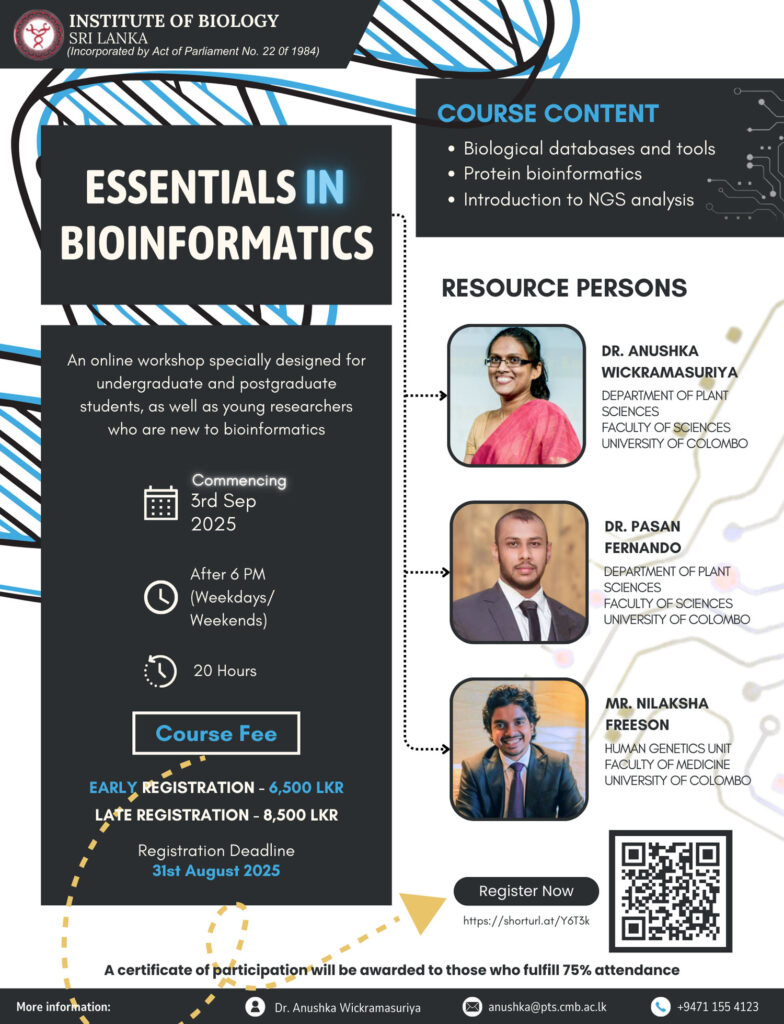Essentials in Bioinformatics
Workshop Overview: This online workshop is designed to provide a comprehensive introduction to fundamental bioinformatics tools and databases essential for conducting research.
Target Audience: This workshop is tailored for undergraduate and postgraduate students as well as young researchers who are new to bioinformatics and wish to acquire essential skills in utilizing bioinformatics tools and databases for their research projects.
Main Areas Covered:
- Biological databases & tools: Biological database searching (exploring NCBI & UniProt), DNA sequence analysis tools: similarity searching, sequence alignment, phylogenetic tree construction, primer designing, promoter analysis
Resource Person: Dr. Anushka Wickramasuriya, Department of Plant Sciences, University of Colombo
- Protein bioinformatics: Protein structure prediction, protein-protein interaction analysis
Resource Person: Dr. Pasan Fernando, Department of Plant Sciences, University of Colombo.
- Introduction to NGS analysis
Resource Person: Mr. Nilaksha Neththikumara, Faculty of Medicine, University of Colombo.
Duration: 20 h
Tentative Dates:
| Date | Time | |
| Biological Databases & Tools | 3rd September 2025 | 6.30 – 8.30 pm |
| 5th September 2025 | ||
| 10th September 2025 | ||
| 12th September 2025 | ||
| Protein Bioinformatics | 15th September 2025 | |
| 17th September 2025 | ||
| 22nd September 2025 | ||
| 24th September 2025 | ||
| Introduction to NGS Analysis | 7th October 2025 | |
| 9th October 2025 | ||
| 14th October 2025 | ||
| 16th October 2025 |
Course Fees:
- Early Registration: 6,500 LKR (on or before 31st August 2025)
- Late Registration: 8,500 LKR
For Registration:
A certificate of participation will be awarded to those who fulfill 75% attendance

